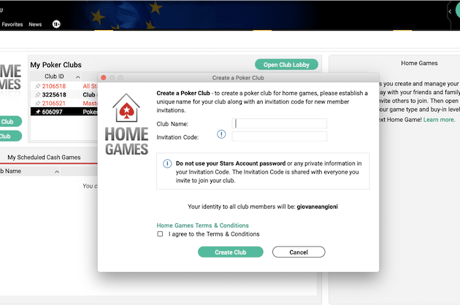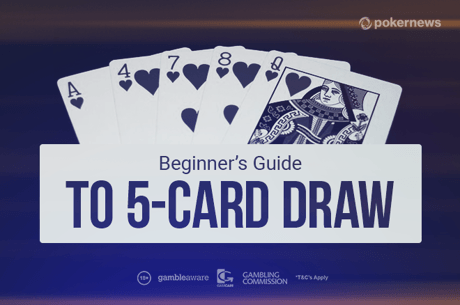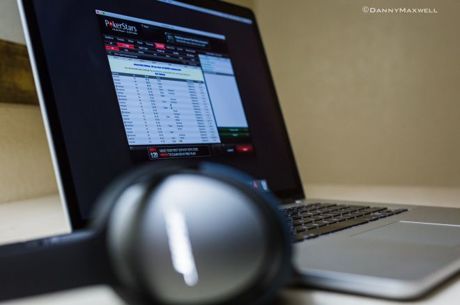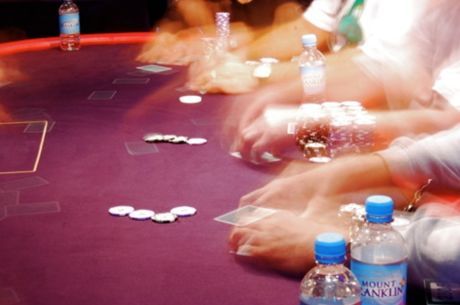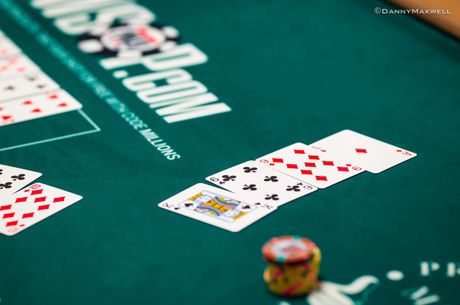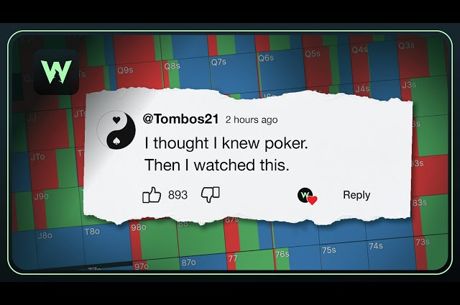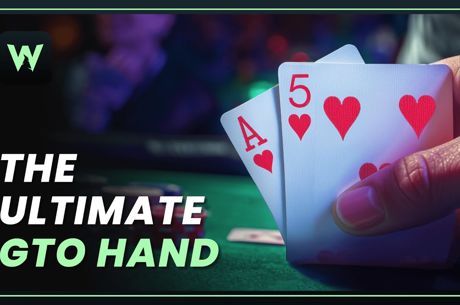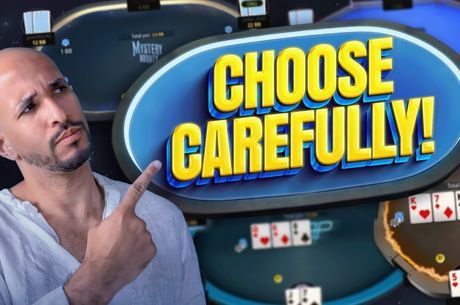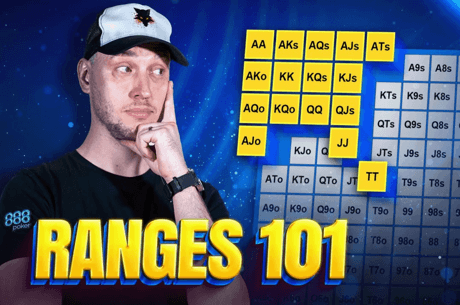What NOT to Do Online: Promote Your Blockers
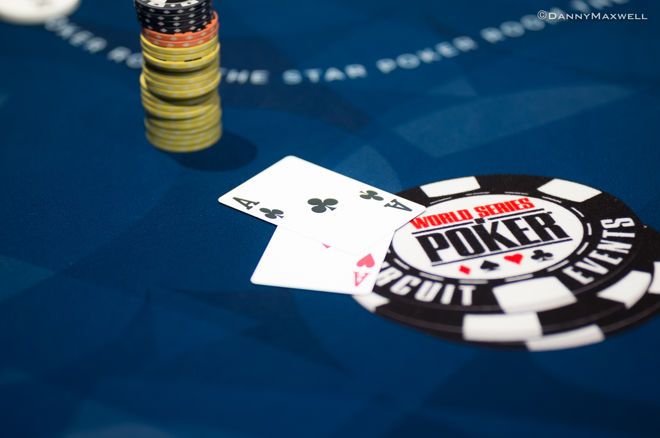
Look down at your hole cards — are your blockers suddenly superstars?
Are they going to make the difference in the hand where, like Phil Ivey, you can turn them up and pretend you knew more than you did?
When it comes to such blockers — that is, cards that seem meaningful in the way they rule out what your opponent can have — think carefully about what they might block and what they might not.
What follows is a hand illustrating the danger of overvaluing (or misvaluing) blockers.
An Innocent, Single-Raised Pot
The hand took place online at the 100NL ($0.50/$1) 6-max. "Zoom" tables on PokerStars.
Infatuation always begins so innocently, and the middle position player's love affair with his aces — A♣A♠ — was no different.
He min-raised the pot to $2 and was called by both the button and the big blind. The effective stacks for this three-way pot were 110 big blinds.
Before We Continue: Do you know how to play pocket aces?
The flop came K♣Q♣8♠, leaving the preflop raiser with an overpair, the backdoor nut-flush draw, and two opponents who could easily have worse one-pair hands.
What more could our hero with aces ask for?
He agreed and bet $3 into $6.50. Only the button called.
The Turn of Events
The turn card was the 10♠ — by no means a blank.
In the button's flop-calling range are hands like AxJx (offsuit and suited), as well as a number of suited hands like Jx9x, Qx10x, Kx10x, and maybe 10x8x.
All these hands were now better than aces after this turn card.
Meanwhile other suited hands like KxJx, QxJx, Qx9x, Jx10x, and Ax10x have all increased their chances of drawing out. AxQx and AxKx — hands the button might have three-bet preflop — remain crunched on this card, as do unlikely holdings like 9x8x-suited or 8x7x-suited that would fold to a turn bet.
The middle position player bet half-pot again, $6 into $12.50.
This is fine in practice. He is still ahead of much of the button's calling range. And he is behind button's raising range.
In fact, if the button raises his strongest hands, the MP player with aces will be able to play perfectly, getting value from weaker hands, and getting away versus stronger poker hands.
Meanwhile if the button just flat-calls, the MP player can make a value bet on a safe-seeming river.
The button did raise, and not so innocently. The price of poker went up to $25.
But I Block the Nuts!
That may have been what our hero with A♣A♠ was thinking.
Looking down at such a hand, he can discount half of the total combinations of AxJx. However, that doesn't mean his opponent having the nuts is half as likely when he makes that big raise.
It means his opponent having the hand that makes the nuts was half as possible before the flop came out.
What is impossible, by the way, is the button having either of the two nut flush draws.
There are two spades and two clubs on the board, and both the A♣ and the A♠ are in the middle position player's hand.
In other words, while the two strongest semi-bluffs can't be in the button's hand, the nuts can be.
Read also: How to read poker players when you play online
What Not To Do
Our middle position hero was in full aces-love-mode in this spot, and he called the raise. The river then brought the 6♦, which genuinely was a blank.
On a spade or a club (or a jack), the MP player might more easily check and call this river. After all he holds a card that makes these rivers less scary.
But on a 6♦ river, what is the point in leading out? It is unclear, but that is what he did, and for a whopping $30.
His opponent now had the run of the chicken coop.
If the button had nothing he could fold, if he had something he could call, and if he was confident in being nutted he could shove.
Since he had J♠9♠, he did shove, and the middle position player decided to spend his life savings on the divorce lawyer and got stacked.
"But I blocked the nuts!" he might have protested, could anyone hear him over the sound of the button stacking his chips.
At least we can honor these aces' memory by pointing out the perils of getting married too early to a pretty hand and the subsequent immateriality of blocking the nuts half-way through.

